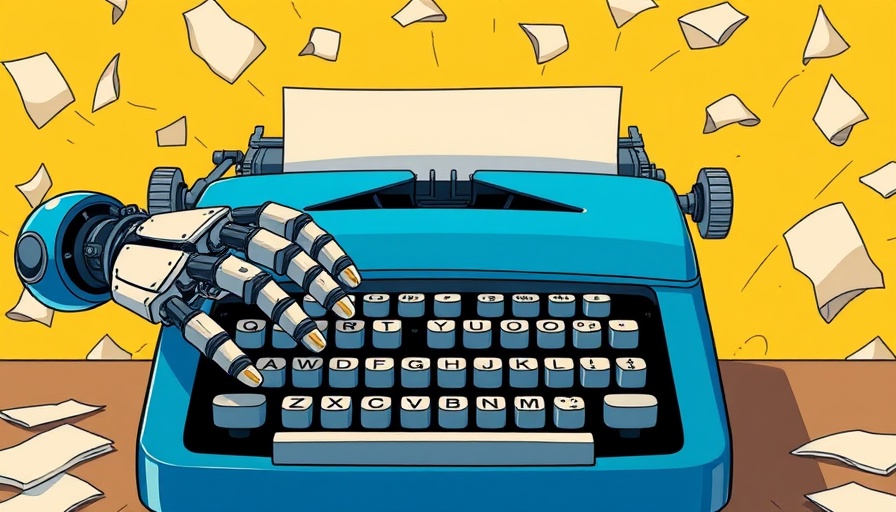
Understanding the Debate: Copyright and AI Training
A recent study casts new light on the contentious issue surrounding the use of copyrighted material in training artificial intelligence (AI) models. Conducted by researchers from prestigious institutions such as the University of Washington and Stanford, the study emerges amidst ongoing lawsuits against OpenAI. Authors, programmers, and other rights-holders claim that the company used their works without permission to develop its wide-ranging models, including chatbots like GPT-4.
What Does 'Memorization' Mean in AI?
At its core, the term 'memorization' refers to the ability of AI models to recall specific data they have been trained on. This is particularly concerning when the data includes copyrighted materials, which raises ethical and legal questions. The researchers employed a method involving "high-surprisal" words—words that stand out due to their rarity in context. By testing AI’s ability to guess these unique words from a passage, researchers determined that models like GPT-4 had, indeed, memorized snippets from various copyrighted texts, including popular fiction and prominent news articles.
The Legal Battle: Fair Use vs. Copyright Violation
OpenAI's defense rests on the notion of 'fair use', arguing that training AI models on existing content could fall within this legal allowance. However, this viewpoint clashes with the sentiments expressed by the plaintiffs, who contend that copyright law does not provide a clear pathway for AI training purposes. The outcome of these lawsuits could set a precedent for how AI companies operate in the future.
Impact on AI Transparency and Trustworthiness
The findings underscore a pressing demand for transparency in AI development. With AI systems increasingly integrated into society, it is vital for users to trust that these platforms operate fairly and responsibly. As co-author Abhilasha Ravichander noted, there is a strong need for tools that allow researchers to audit these models. Without such mechanisms, the potential for exploitation of copyrighted materials looms large, raising ethical questions about data sourcing in the tech industry.
The Future of AI Development
The study highlights a notable shift in the conversation around AI and copyright, signaling that greater scrutiny lies ahead. As technology continues to evolve, companies like OpenAI will need to adapt, possibly leading to new legislation and practices surrounding the use of copyrighted material. This evolving landscape also opens a dialogue for developers and legislators to collaborate on establishing clearer guidelines, ensuring that technological advances do not trample on individual rights.
Your Role as an Informed Technology User
As a consumer of technology, understanding these issues impacts everyday life. Being aware that AI systems may use copyrighted material without rights can influence how you engage with these tools. It’s imperative to stay informed and reconsider the implications behind the technologies we frequently use.
Concluding Thoughts
The study not only sheds light on OpenAI's potential overreach regarding copyright but also asks broader questions about data ethics in AI. As we navigate this fast-paced technological realm, having an understanding of how AI learns—and the potential ramifications of that learning—becomes increasingly essential. The success of future AI technology hinges not just on its capabilities but also on its compliance with ethical standards and legal frameworks.
Stay engaged with this ongoing conversation and consider the implications of these findings as they unfold in the technology news landscape.
 Add Row
Add Row  Add
Add 



Write A Comment